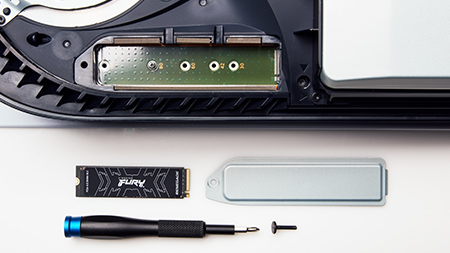Are SSDs useful for today’s gamers? Gamers looking to get the best performance from their computers have turned to SSDs, the high-end hard drive that isn’t technically a hard drive.
Hard drives are the traditional magnetic platter storage drives (HDDs) that have been in use since the mid-1950s.
We often use the term SSD in reference to solid hard drives. But it is just as often called a solid-state drive, also a solid-state drive.
These types of redundancies are common with initials: see “ATM machine” or “CPU unit”.
But instead of fixating on an unimportant issue, let’s see what all this talk about SSDs is about and why gamers should consider using them.
First, let’s talk about the basics of SSDs.
In the late 2000s, SSDs began to become a more common option for computer storage.
Today, they are recognized as a high-end alternative to the once ubiquitous magnetic HDDs (hard disk drives). And for good reason.
Today, SSDs are found in computers and gaming consoles.
Unlike a hard drive, an SSD uses non-volatile memory (flash) components to store and access data.
In other words, it contains no moving mechanical parts, unlike HDDs. And because they have no moving parts, SSDs are very stable and better suited to withstanding drops, jolts, shocks, and everyday wear and tear.
This means they are more reliable and less likely to suffer data loss.
SSDs are 35 to 100 times faster than HDDs. What does this mean for players? A machine that has superior performance due to its faster boot times, data movement, and higher bandwidth.
Additionally, faster speeds mean SSDs can process data at the ultra-high speeds needed in today’s gaming world.
With Microsoft releasing the DirectStorage API for Windows, games can potentially leverage these fast transfer rates for even faster load times too.
So how does all this translate into the gaming world? It’s no surprise that gamers love the performance SSDs offer.
Speed, reliability and energy efficiency are important factors for gaming pleasure. These are the pillars of SSDs. Are SSDs good for gaming? Maybe that’s what they do best.
Among the different types of SSDs available, NVMe™ (Non-Volatile Memory Express) SSD is perhaps the best for gaming.
Indeed, their read/write speeds, essential for today’s sophisticated games, are at the high end of the spectrum and help reduce the much-hated latency factor that can cripple game performance.
(NVMe SSD read/write speeds range from 1,000 to over 7,000 MB/s, depending on whether it’s a Gen 3 or Gen 4; SATA SSDs typically have faster read/write speeds 500/500 MB/s).
Is 500 GB enough for gaming? It depends on your goals. Triple A PC games often weigh more than 100 GB.
In other words, an SSD of this size could only accommodate a very small number of the largest games on the market.
For gamers who alternate games from month to month, it may be helpful to have a larger backup HDD and reserve the SSD for actively used games that require faster read/write speed. fast and with reduced latency.

NVMe SSDs are so much better than their alternatives that gaming consoles (including the PS5) exclusively use high-speed NVMe SSDs for storage.
The PS5™ has an effective storage capacity of 667 GB (825 GB in theory, but a significant portion is taken up by the console’s operating system).
What SSD do you need to play on PS5? Only NVMe PCIe 4.0 SSDs with a speed of 5,500 MB/s and a capacity of 250 GB or more are compatible with Sony’s most popular console.
PlayStation® now gives users the ability to install internal M.2 form factor SSDs like the Kingston FURY™ Renegade.
This means you’ll still be able to use the original 825GB SSD storage as well as the new space you’ll soon add with this M.2 SSD.
External SSDs, like the Kingston XS2000 Portable SSD, cannot be used to play games, but they can store them.
Many of the best PS5 games require 40-60GB of storage space, so storing them on an external SSD may be useful.
The Xbox® Series X and S both come with onboard SSDs (1TB and 512GB, respectively).
In reality, the Xbox Series storage. One being a custom memory card type SSD and the other being a USB stick like the Kingston DataTraveler Kyson.
The latter may be better suited if you are looking for an affordable alternative with high capacities.
SSD prices are falling and their storage options are more and higher (up to 8TB) than before.
Whether you’re expanding your console’s storage, building a new gaming rig, or upgrading an old PC, it’s always a good time to buy an SSD.



